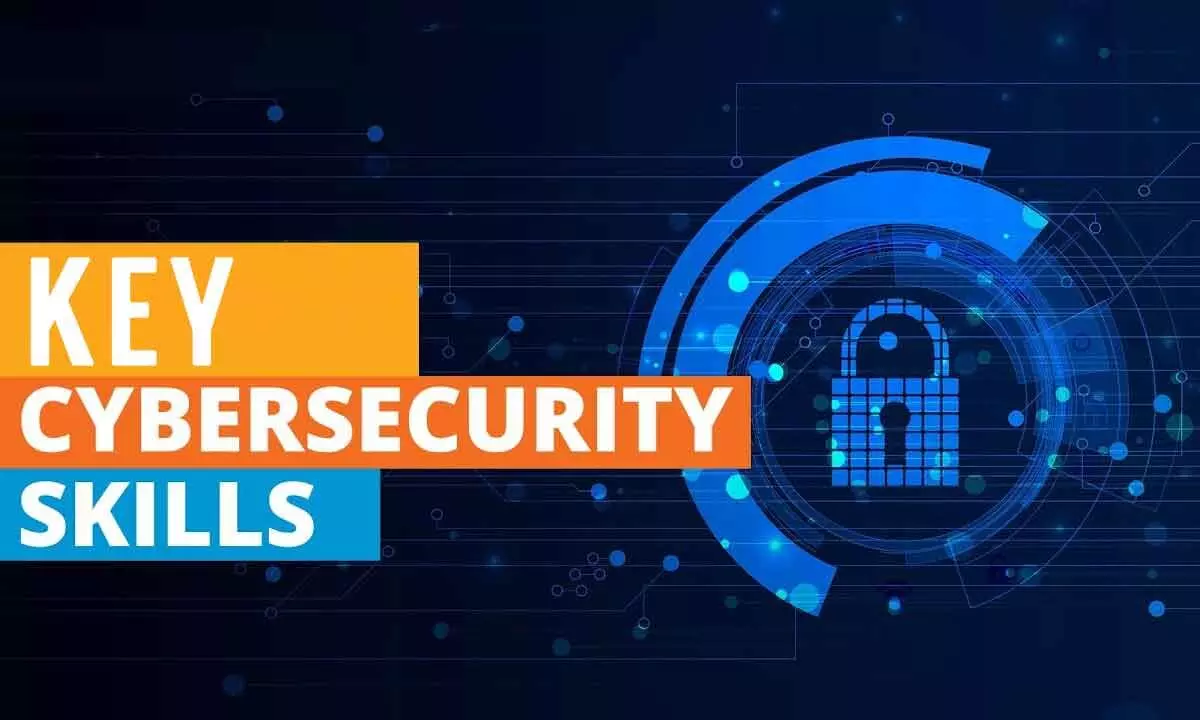Staying Ahead in Cybersecurity: Key Skills and Emphasizing Continuous Learning for Professionals

Mr Bryan Gambrel, Executive Editor for STEM titles at Wiley, Gambrel emphasized the critical need for professionals to stay ahead of the curve through continuous learning.
In a recent conversation with The Hans India, Bryan Gambrel, Executive Editor for STEM titles at Wiley, delved into the growing realm of cybersecurity and IT. Amidst the growing demand for IT security professionals, Gambrel emphasized the imperative for organizations to prioritize continuous learning and diversity in their talent acquisition strategies. He urged aspiring learners to embrace lifelong learning and upskilling as essential tools in safeguarding against the escalating tide of cyber threats. Let's delve into the detailed interview.
The dynamic fields of Cybersecurity and IT are growing rapidly, with one in three positions currently unfilled. Projections indicate a substantial 32% job growth in the next decade, offering a median income estimated at $112,000 annually. With nearly 700,000 open roles, this is an opportune moment for aspiring IT professionals to make their mark in this high-demand industry, but it also requires a keen understanding of the opportunities available.
Education: A Launchpad for Success
A bachelor's degree in computer and information technology or a related field lays the foundation for success in the competitive cybersecurity field. While not always mandatory for entry-level positions, a degree in one of these is highly valued. It lays the groundwork for success in multiple areas of IT and demonstrates a desire to learn more about the overall discipline. However, a degree alone is not sufficient. To be best positioned for these opportunities, aspiring IT professionals can prepare for specialized IT certifications by pursuing courses or high-value certifications, either in-person and online, offered by many universities and community colleges that cater to both full-time students and those returning to school mid-career.
Building a Distinct Advantage
Combining a bachelor's degree with the CompTIA Security+ certification creates a formidable advantage in the cybersecurity job market. Even those entering the job market with an associate's degree in networking or IT should aim for a bachelor's degree, even if pursued part-time. While a bachelor’s degree is not always mandatory for entry-level positions, it is highly valued by employers. A degree demonstrates that the candidate has a strong academic background and is committed to continuous learning and professional development. It also provides a competitive edge over other candidates who do not have a degree. Moreover, a bachelor’s degree is a prerequisite for many advanced positions, such as security analyst, network architect, and information systems manager. The Security+ certification adds a crucial layer of expertise to their profile.
Diverse Paths to IT Security
A career in IT security is not limited to those with a traditional IT background. Professionals from diverse academic roots can forge successful careers, although it might require some additional effort, such as gaining hands-on IT security experience, taking IT courses tailored for non-IT majors, and pursuing the Security+ certification.
Importance of Interactive Platforms and Courseware
Interactive platforms and courseware also play a pivotal role in preparing professionals to specialize in IT. These platforms offer practical, real-world exercises and simulations, fostering learning that adapts to the ever-changing nature of the field. Incorporating immediate feedback, collaborative features, and gamified elements, these interactive resources keep learners engaged and equipped with the practical skills necessary in cybersecurity.
Cybersecurity Beyond the Tech Giants
While job opportunities at tech giants like Apple, Amazon, and Google often make the headlines, the demand for IT security positions is growing fast across the board. The increasing frequency of data breaches, ransomware attacks, and social engineering threats makes security an indispensable aspect of many job roles at nearly every company. With new technologies and threats emerging every day, companies of all sizes need well qualified talent eager to stay on top of these changes. However, there exist challenges in the hunt for the right talent: a widening skills gap, fierce competition, and lack of training.
Therefore, continuous learning is no longer optional; it's essential. Organizations must implement rapid upskilling programs for their existing workforce and prioritize diversity as they build their talent pipelines. Micro-learning modules and targeted mentorship programs for underrepresented groups are some tools that can help build a resilient cyber army. On the other hand, emerging talent or aspiring learners must commit to solidifying foundations, embrace lifelong learning and upskilling, and get ready to defend against the rising tide of cyber threats.








